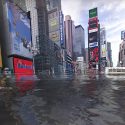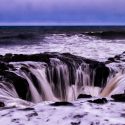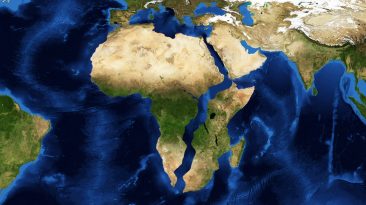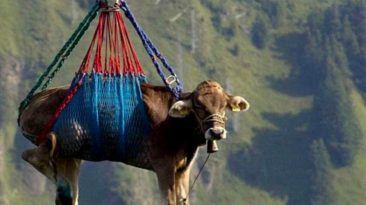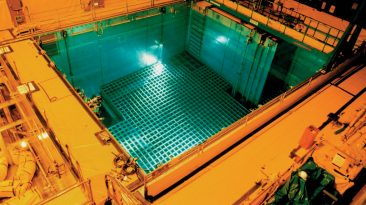What if one day you turned on the news channel to learn that every active volcano on Earth is erupting. If all the volcanoes on Earth erupted at once, would our planet survive all the ash, molten lava, and scorching gasses? How far up into the atmosphere would the ash go? Would there be anyone left to report the news?
Not all volcanoes would pose a danger. Extinct volcanoes – those that haven’t erupted in the last 10,000 years – just don’t have any magma left to erupt again.
However, at any given time, there are 10 to 20 volcanoes erupting somewhere on Earth. In total, there are 1,500 active volcanoes on land, and an unknown number of them underwater. 20 of those on land are known as super volcanoes. The largest one is Yellowstone – you could place the entire city of Tokyo in its crater. What if all of them erupted all at once? What would this apocalypse look like exactly?
If all active volcanoes on Earth went off at the same time, there would be a lot of explosions.
Explosive eruptions would churn out wall of rocks, ash and gas, wiping out the nearby areas. You wouldn’t be able to outdrive that giant hot cloud – rocks as hot as 1,000°C (1,830°F) would be traveling faster than as 700 kph (450 mph).
But not all volcanoes would erupt that powerfully. Instead of violently expelling magma, some volcanoes would steadily eject it on the ground. That’s called an effusive eruption. If your local volcano erupted that way, consider yourself lucky.But not for too long.
Other eruptions would be sending plumes of ash into the air. They would travel for thousands of kilometers, and cover the Earth with the thick blanket of ash.
Ashy clouds would block the sunlight – plunging the whole planet into complete darkness. Without sunlight, there’s no chance of photosynthesis. All the plants would die, including all the crops that feed us and the animals. Even if the crops could somehow survive without the sun, they’d be wiped out by acidic rains.
Because volcanic ash is actually tiny rock particles, it would be very heavy. If enough ash were to fall on your roof, your home would collapse.
You’re not escaping this in an airplane.The hot clouds of ash would melt car and plane engines. All flights would be cancelled anyway, because of the low visibility. Deep ocean volcanoes made the water acidic. In such environment, sea life would suffer huge losses. The entire food chain would be devastated.
Because no sun rays would reach the Earth’s surface, the planet would significantly cool down, to the point that we might end up in a new Ice Age. In the long-term though, the global temperatures would change again – this time getting much hotter. With all carbon dioxide released during the eruptions, we’d see a tremendous greenhouse effect, that would heat up the planet again.
Now, if you survived the volcanic explosions and didn’t die from breathing in the ash, the safest place for you might be on a ship in the middle of the ocean. Or in an underground bunker. Just make sure you have enough food supplies and warm clothes to keep you alive in this post-apocalyptic world.
Before coming out, you’ll need to wait until the atmosphere clears up, that’s going to take a very, very long time.
And you wouldn’t be seeing the Earth you once knew. Prolonged volcanic eruptions spewing from the planet’s mantle would dump this partly-molten layer on the surface, causing a mass imbalance. As a result, our planet might tip over – just like Mars did about 3.5 billion years ago. Paris might end up on the North Pole.
Of course, as always, such a scenario is very unlikely to happen. At least there is no evidence of all volcanoes erupting at once in the 4-billion-year history of Earth. But is it better to be prepared for everything?


